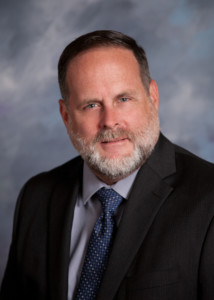New labor & employment laws impacting California public agencies in 2021
By Robert Crawford and Alissa Hurns, Best, Best & Krieger LLP
California’s pandemic response dominated the Labor & Employment laws passed in 2020.
Among other things, these measures expanded paid leave benefits and implemented COVID-19 reporting requirements that require immediate action from public agencies. In Part 2 of this annual Labor & Employment law roundup, Best Best & Krieger LLP provides California public employers with up-to-date information on the most notable new legislation impacting their workplaces.
Miss Part 1 of this series? Read it now.
Coronavirus-related Legislation Impacting Public Workplaces
Strengthening the State’s ability to monitor COVID-19 in the workplace, AB 685 implemented new notice and recordkeeping requirements for employers when a COVID-19 infection is confirmed in the workplace. Public employers who receive a notice of potential exposure must provide various notifications within one business day to employees and the employers of subcontracted employees.
Where an outbreak is confirmed, public employers must also notify local health agencies.
As such, if they aren’t already, public employers should document incidents of potential COVID-19 exposure in the workplace and maintain records of employee schedules at each worksite immediately. If an employer knows, or reasonably should know, that an employee tested positive for COVID-19, the employer must report the positive result to their claims administrator in writing within three days.
AB 685 also grants Cal/OSHA the authority to shut down workplaces if employees are deemed to face an “imminent” hazard of COVID-19 infection. Shutdowns, however, must be done in a way that does not significantly interrupt critical government functions — such as the delivery of electricity and water — that are essential to ensuring the public’s health and safety.
The reporting requirements and imminent hazard provision laid out by AB 685 expire Jan. 1, 2023.
Addressing the State’s stockpile shortages of personal protective equipment, lawmakers passed AB 2537 that requires general acute hospitals to provide employees who administer direct patient care or directly support such care with PPE. Employers are also required to ensure employees use the PPE supplied to them.
Starting April 1, these employers must also maintain a PPE stockpile, equivalent to three months of normal consumption, that includes N95 and surgical masks, isolation gowns, eye protection and shoe coverings, among other items used to protect workers for COVID-19. Single-use equipment in the stockpile must be new and not previously worn or used.
Upon request, these employers must also report their highest seven-day consumption of PPE in the 2019 calendar year and provide their stockpile inventory and copy of their written procedures to Cal/OSHA. Failure to comply with the State’s new stockpile mandates could mean a $25,000 penalty for each violation.
This law extends the COVID-19 presumptions laid out in Gov. Newsom’s since-expired Executive Order N-62-20 stating that certain employees who contracted COVID-19 did so in the workplace for purposes of receiving workers’ compensation benefits.
SB 1159 establishes that employees who reported to work between March 19 and July 5, and tested positive or were diagnosed with COVID-19 within 14 days of being in the workplace, have a rebuttable presumption the illness is industrial. This presumption was expanded by SB 1159 to include firefighters, peace officers, fire and rescue coordinators, certain health care professionals and health facility workers and employees diagnosed with COVID-19 after an outbreak in the workplace on or after July 6. The presumptions laid out are effective through Jan. 1, 2023.
New Laws Address Sick Leave, Paid Family Leave & More
Prior to AB 2017, California law required all employers who provide sick leave to allow employees to use their accrued and available sick leave to take time off to care for a sick family member. Employers were barred from denying an employee their right to do so as well as from taking discriminatory action against an employee for using sick leave for these purposes.
Employers are now barred from requiring an employee to use sick leave to care for an ill family member. Employees, AB 2017 established, may now to use sick leave with Kin Care leave at their discretion.
The law extends paid leave under California’s Paid Family Leave to cover participation in a qualifying exigency related to the active duty (or call to active duty) of an individual’s spouse, domestic partner, child or parent in the U.S. Armed Forces. Previously, the PFL program was much more limited in scope and only provided paid leave benefits to workers who took time off to care for a seriously ill family member or bond with a child within one year of the child’s birth or foster/adoption placement.
Under existing law, California employers are barred from discharging, discriminating or retaliating against an employee who is a victim of domestic violence, sexual assault or stalking. AB 2992 extends the law to include victims of crime or abuse. The law states that employers must allow employees to take time off work to ensure their health, safety or welfare or that of their child and for an employee whose immediately family member is deceased as a direct result of a crime.
The California Family Rights Act had prohibited employers from refusing to grant an eligible employee’s request to take up to 12 weeks of unpaid leave during any 12-month period for bonding with a newborn child and the adoption or foster care placement of child, for an employee’s serious medical condition or to care for a parent, spouse or domestic partner with a serious medical condition.
These measures only applied to employers with 50 or more employees.
SB 1381 has extended the CFRA to employers with five or more employees. Also, of note, the law has included unpaid leave due to a qualifying exigency and expanded the State’s definition of a family member to include the care of an adult child over 18 years of age as well as the child of a domestic partner and a grandparent, grandchild and sibling.
For more on the State’s pandemic response and the critical workplace regulations aimed to protect workers and stop the spread of COVID-19, check out Part 1 of this annual Labor & Employment series.
Roger Crawford is a partner at Best Best & Krieger LLP in the Labor & Employment practice group. Representing both public- and private-sector employers, he has extensive experience in labor relations and employment-related arbitrations. He can be reached at roger.crawford@bbklaw.com.
Alissa (Lisa) Hurns, an associate in Best Best & Krieger LLP’s Labor & Employment practice group, represents employers in lawsuits and administrative hearings involving harassment, discrimination, retaliation, wrongful termination and unpaid wages claims. Contact her at alissa.hurns@bbklaw.com.







